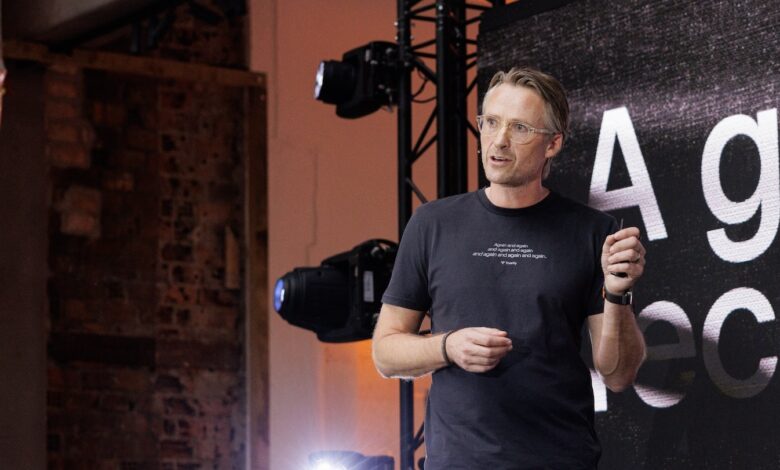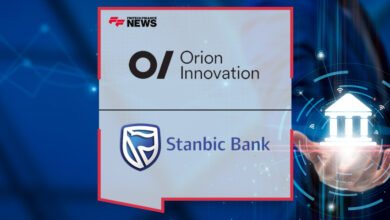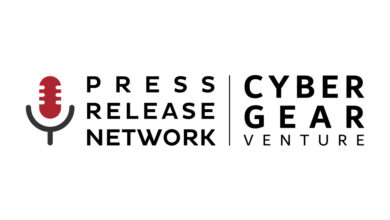The understated Swedish fintech unicorn that’s Klarna’s quieter cousin

Europe is the global leader in open banking — the system which makes it easier to share customers’ financial data between providers.
But even here, the payment transition has only just begun. Between 2023 and 2027, open banking is forecasted to grow by 479% to a total transaction value of $330bn globally.
Trustly, a Swedish scaleup, is already riding the wave. Founded three years after Klarna in 2008, it provides account-to-account direct payments, which help cut costs for merchants, as they pay significantly smaller interchange fees for instant bank payments than card transactions.
It has 9,000 merchants as customers and reported an annual revenue of $265m in 2023. In recent years, it’s been focused on international growth — in the US in particular — and, as a result, its transaction value grew by 79% between 2022 and 2023, from $33bn to $58bn. (That’s two-thirds of Klarna’s transaction volume of $94bn over the same period.)
That upward trajectory is showing no signs of slowing. “We had 27% growth (in revenue) in the second half of last year. That growth has so far continued into 2024,” CEO Johan Tjärnberg tells Sifted.
US largest market in four years
Trustly may be a well-known payment solution on home turf but it flies under the radar in the rest of the world — especially in comparison to its larger cousin Klarna.
“We see ourselves not as a consumer brand but more as an invisible wallet. We just want to make sure [payments] work in a super simple and secure way. But we are not going to go the way Klarna has gone (in terms of consumer-targeted branding),” says Tjärnberg, who stepped into the role as CEO two years ago. He was previously the cofounder and CEO of Swedish fintech Bambora which was sold to French payment giant Ingenico for €1.5bn in 2017.
That said, the two businesses do share some things in common. The US is now Trustly’s biggest market (and Klarna’s) — four years after the scaleup launched there.
In 2019, ahead of the pandemic, Trustly acquired PayWithMyBank, a Silicon Valley-based payment startup with just 10 employees. Four years later, half of Trustly’s team of 1,000 people are focused on the US.
“I think we timed our expansion quite perfectly when we entered the US. Open banking didn’t really exist before, and then we saw an incredible demand from large merchants,” Tjärnberg says; its customers in the US include Verizon, PayPal and eBay.
Adding recurring payments for subscriptions
It’s not just geographic expansion which is helping Trustly grow; it’s also created new products.
In May last year, the fintech launched an AI and data engine called Azura, which recognises consumers (who have consented to share their information) before they enter the checkout. This eliminates the need for customers to select their bank and account manually at the point of payment.
“Traditionally, open banking as a consumer, you choose to pay from your bank. Then you have to start by selecting which bank you have. In a market like Germany, where there are hundreds of banks, it’s cumbersome,” says Tjärnberg.
“With Azura, we can recognise the customer and provide the last used account, the buyer clicks on it, we use face recognition and it is done. With this, we are unique in the industry. I would describe it as an Apple Pay experience,” he adds.
The AI software can also predict when people are most likely to have money in their accounts, which has opened the door for merchants to use Trustly for recurring payments for subscription services, instead of cards. This feature was launched last week in Sweden, France, the Netherlands, Italy, Germany, the UK and Spain — Trustly’s core markets in Europe.
“The problem that almost everyone around the world has is that they have a fairly large portion of what is called involuntary churn because the customer has not entered the correct details resulting in some form of error during your onboarding. Another big issue is non-sufficient funds, meaning that when a charge is made to your card… there are no funds available on the card,” says Tjärnberg; Trustly’s predictive algorithms are hoping to solve that.
Tech acquisitions in 2023
Trustly’s third path to growth (particularly in Europe) is via acquisitions. In May last year, it acquired London-based public sector payment specialist Ecospend, which provides open banking services for HMRC, for £28m.
“We see quite large opportunities in the public sector vertical. I believe we already have a couple of million UK citizens who pay their taxes via Trustly instead of making a manual bank transfer or even using cheques,” Tjärnberg says.
Last year Trustly also bought French startup SlimPay for €70m. Its technology — which Trustly has incorporated into its tech stack — formed the foundations of the algorithm which figures out the best timing for recurring payment withdrawals.
IPO set on hold
In 2021 Trustly was rumoured to be planning an IPO — but it put the plans on hold in 2022 following criticism and a €11m fine from Sweden’s financial supervisory authority Finansinspektionen. It thought Trustly was not fully compliant with anti-money laundering procedures — in particular when it came to its biggest group of customers: the gambling industry. Trustly is now trying to limit its dependence on the gambling industry, focusing on areas like ecommerce, financial services and travel instead. Since the fine in 2022, the authority has had no further complaints about Trustly’s compliance with anti-money laundering procedures.
There are currently no plans to IPO for at least 18 months, says Tjärnberg.
“I think we have benefited from having a bit of peace and quiet for a couple of years and being able to focus on innovation and our entire product agenda,” he says.
The scaleup also has deep-pocketed backers: in 2018, private equity firm Nordic Capital bought a majority stake in Trustly. In 2020, Trustly raised an undisclosed amount with BlackRock as the lead investor. And in 2023, Trustly raised another €130m from its shareholders, at a $1.35bn valuation — a drop from its top valuation of $7.7bn in 2021.
Trustly’s payment competitors include UK fintech GoCardless, Apple Pay for merchants, Stripe Connect and fellow Swedish fintech Brite Payments — although Tjärnberg isn’t too phased by most of them.
“Looking at the open banking market, there are many companies that are local and relatively small. We are the only one which has managed to build scale and achieve some form of size. I believe this will be an advantage going forward,” Tjärnberg says.
“When we work with large merchants, helping them with account-to-account payments in the Nordics is not enough. We must be able to handle the large markets in Europe and the US.”



